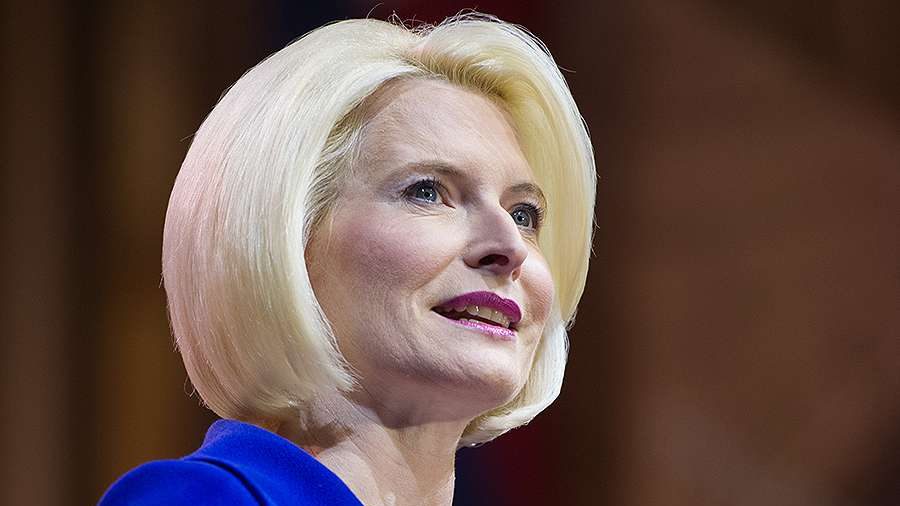The U.S. Ambassador to the Holy See has called attention to the role of faith-based organizations in delivering U.S government relief funds to assist people who are suffering due to the coronavirus in Italy.
“The United States is funding NGOs and faith-based organizations that can effectively deliver critical assistance,” U.S. Ambassador Callista Gingrich told EWTN News May 6.
“It’s important that American money be put to good use. Faith-based organizations are effective and trustworthy partners. They’re inspired by a sense of purpose and dedication to help those most in need,” the ambassador said.
The U.S. Agency for International Development (USAID) has committed $50 million to aid Italy as it responds to the outbreak, which includes $30 million in funding split between faith-based organizations, nongovernmental organizations, and public international organizations, an official from the embassy told CNA.
This is part of the $900 million the U.S. government is contributing globally in response to the COVID-19 pandemic. On May 6, U.S. Secretary of State Mike Pompeo announced that $100 million will be used to support virus detection and control, and $28 million to support refugees and migrants.
While the U.S. government is still in the process of vetting which NGOs and faith-based organizations will be receiving funds in Italy, Ambassador Gingrich said that the assistance package includes funding for “some of our Vatican-affiliated partners here, in Italy.”
A USAID document published in April describes the work of Catholic Relief Services and Caritas in Bangladesh, Nepal, Lebanon, Liberia, Kenya, Guatemala, and Mexico in supporting health care among vulnerable populations. It also showcases the contributions of Islamic Relief USA, the Jewish Distribution Committee, World Vision, and Malteser International, the aid agency of the Order of Malta.
In Italy, Malteser International set up a hospital and donated 260 ventilators, and distributed food and medicine to elderly in isolation.
A symposium at the Vatican on government partnerships with faith-based organizations co-hosted by the U.S. Embassy to the Holy See in October also highlighted the work of Caritas Internationalis, the Community of Sant’Egidio, and Aid to the Church in Need in providing humanitarian assistance.
The U.S. government has previously partnered with faith-based groups to provide emergency relief, defend religious freedom, and combat human trafficking, stating that faith-based organizations provide “unparalleled access to local populations and a fierce dedication to human dignity.”
In April, the embassy publicized the work of the evangelical Christian organization Samaritan’s Purse in creating and staffing an emergency field hospital in Cremona, Italy, in an online video.
“As the world continues to battle the COVID-19 pandemic, faith-based organizations are playing a vital role,” Gingrich said in the video.
Nearly 30,000 people have died in Italy’s coronavirus outbreak, according to the Italian Ministry of Health’s statistics on May 7. At least 89,000 people remain infected with COVID-19 in Italy after a total of more than 215,000 cases were documented, mostly in the north of the country.
Due to Italy’s nationwide lockdown, the U.S. Embassy to the Holy See has had to cancel several events it had scheduled for the spring, including a symposium, “Confronting the global rise of anti-Semitism,” scheduled to coincide with the opening of the Vatican’s archives on Pope Pius XII.
However, the ambassador said that she has continued to speak with members of the diplomatic community via weekly video conferences.
“This pandemic will greatly affect our priorities and activities going forward. However, through meetings, symposiums, and cultural diplomacy, the U.S. Embassy to the Holy See will continue our important work with the Vatican to advance peace, freedom, and human dignity around the world,” Gingrich said.

